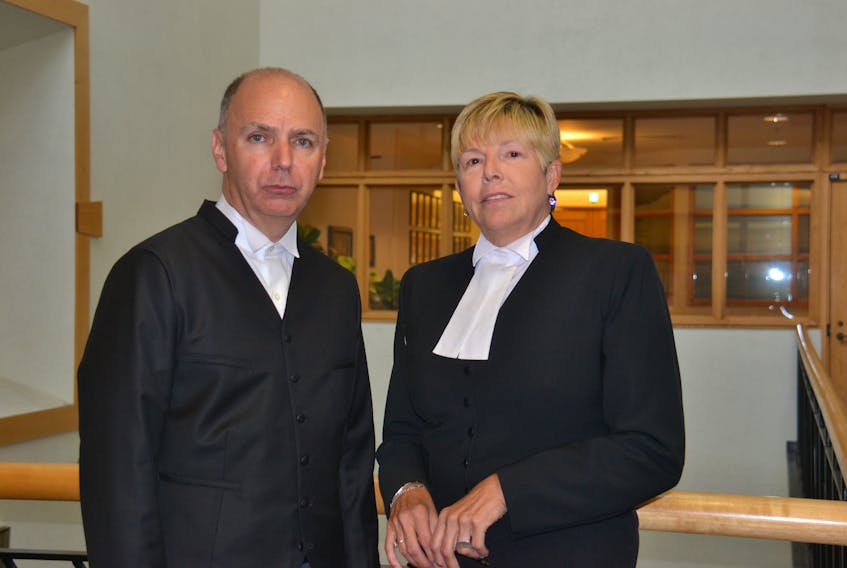CHARLOTTETOWN, P.E.I. — The province’s legal counsel is arguing that the Lennox Island and Abegweit First Nations were properly consulted before a decision was made to sell the Mill River golf course and that the province was under no obligation to halt the sale because of a disagreement with the Mi’kmaq.
In her arguments before a P.E.I. Court of Appeals, Lynn Murray, legal counsel for the province, presented evidence of ongoing contact and correspondence between officials with the P.E.I. government and chiefs and staff of both the Abegweit and Lennox Island First Nations in the years leading up to the sale. Murray also argued the Mi’kmaq failed to show that the sale of the golf course to a private interest would have a negative impact upon Aboriginal title rights.
Murray stated that the two Mi’kmaq communities did not have a veto over decisions made by the province.
On Tuesday, David Rosenberg, a lawyer representing the two Mi’kmaq Nations had argued the 2017 decision by P.E.I. government to sell Mill River to a private businessman would have a negative impact on their claim of Aboriginal title on this land.
A previous application for judicial review of the sale was dismissed by Supreme Court Justice Gordon Campbell last June.
On Wednesday, Murray argued that questions about Aboriginal title were not an integral issue to the sale.
“The matter before Justice Campbell was about the duty to consult, whether there was such a duty and whether it was fulfilled," Murray told the court Wednesday.
"What this matter is not about is Aboriginal title.”
Murray also said the province was aware the Mi’kmaq had asserted title to all of Prince Edward Island, including land owned by the province.
Murray argued that the two Mi’kmaq nations had not adequately demonstrated that their title claim would have been negatively impacted by the sale.
"The Mi'kmaq had an obligation to show a causal connection between the potential impact of the transaction on their asserted Aboriginal or treaty rights," Murray told the court.
"In other words, they felt they had a veto. If they said no, no transfer could take place. In this regard, the province states that is not the law."
-Lynn Murray
Murray also read excerpts of several letters between Don MacKenzie, executive director of the Mi’kmaq Confederacy of P.E.I., and several provincial officials. She argued that the letters indicated that the province’s duty to consult had been fulfilled prior to the sale.
She also noted MacKenzie had said in letters that consent was required from the two Mi’kmaq Nations in order for the sale to go through.
"In other words, they felt they had a veto. If they said no, no transfer could take place," Murray said.
"In this regard, the province states that is not the law."
Murray argued that, in January 2017, the onus was on the two Mi’kmaq Nations to prove their title claim first.
"The position was that, because they had asserted Aboriginal title, that meant their consent was required. Their consent would be required if Aboriginal title was proven. I think that's the law. But it's not proven yet," Murray said.
Finally, Murray argued that the province had not received key information from the Lennox Island and Abegweit First Nations, prior to the 2017 decision, which may have impacted the decision.
At one point during the proceedings, Justice David Jenkins asked if the province had ever informed the Mi’kmaq First Nations that the government believed the sale of the land could go ahead without their approval.
"Was there any record of the province ever disabusing them of their misunderstanding of such an important point?" Jenkins asked Murray.
"I don't think there is," Murray replied.
"He mentions it year after year," Jenkins said, referring to letters from Don MacKenzie.
"I think he would have known," Murray said.
The appeal hearing will continue today.
RELATED









